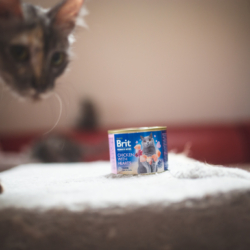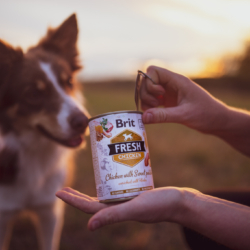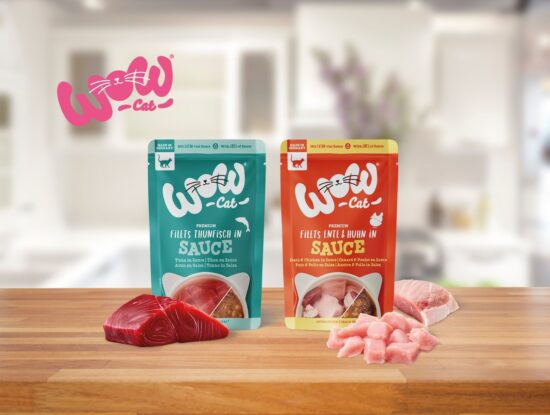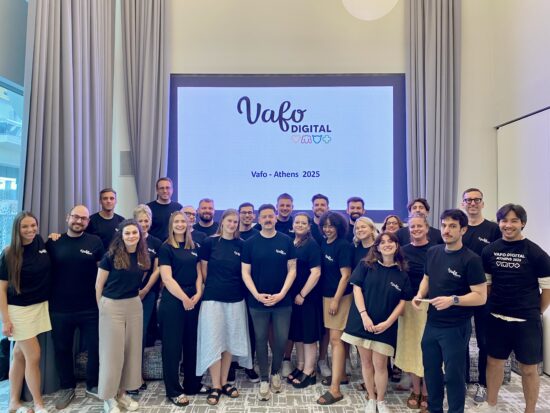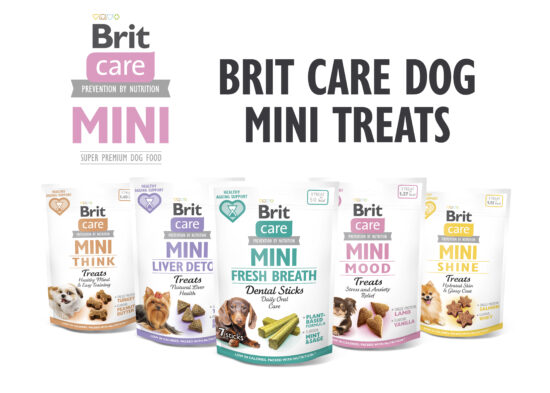Like any human activity, keeping pets has an impact on the environment. The largest Czech producer and distributor of pet foods, VAFO, has decided to reduce this burden. At the beginning of the year, the management of all the European subsidiaries of VAFO Group adopted a sustainability strategy with commitments extending to the year 2025. The new strategy is built on five pillars, which the company will gradually be introducing throughout 2022. In the first quarter of the year, the company discontinued imports of ingredients from third countries, which will result in an annual savings of more than 240 tons of CO2. This year there will also be changes to the packaging of the Brit Care brand with a move to new recyclable materials.

VAFO, one of the founding members of the Pet Sustainability Coalition in Europe and a leading producer of snacks for dogs and cats, is showing the way in sustainability. The company works to educate and promote rules for reducing the impact of the pet industry on the planet.
CO2 emissions
Reducing emissions is the first commitment in the VAFO sustainability strategy. According to analysis of producers, approximately 2.5 kilograms of CO2 are generated for every kilogram of pet food produced when counted from the minute production begins to the moment the product appears on the store shelves. For a dog weighing 25 kilograms who needs roughly 300 grams of food per day, that means a carbon footprint of some 750 grams of CO2. That equates to three kilometres flown in an airplane, for example. Reducing CO2 emissions for transportation is one of the first steps VAFO Group took this year. ‘Reducing the import of ingredients from third countries not only gives us 100% control over quality but also significantly reduces the CO2 emissions produced during transport. Just by reducing import from third countries, such as China and Thailand, we’ve saved 240 tons of CO2 per year, which equates to approximately 2,000,000 kilometres travelled in a car. With this decision, we want to also support local producers and our partners,’ says Tereza Alvarez Sone, head of marketing at VAFO Group.
VAFO is aiming to build a future based on pet food brands with a zero carbon footprint. This can be achieved by means of CO2 offsetting through participation in projects that reduce the impact of human activity on the environment – for example by collaborating with the international organization 1% For the Planet. ‘Because there can be minor deviations when calculating the production of CO2, we offset our carbon footprint by 120%,’ explains Karolína Čápová, head of product at VAFO. The first such food from the VAFO product portfolio is the Finnish brand Hau-Hau.
Recyclable packaging
In the pet food industry, product packaging represents one of the greatest burdens to the environment. VAFO constantly works to improve its packaging to make it environmentally friendlier while maintaining all of the required properties. The company’s ambition is to reduce the amount of material used and increase the proportion of recyclable materials. VAFO Group first began using recyclable packaging for the aforesaid Hau-Hau brand. In 2022, moreover, VAFO Group’s most popular brand, Brit Care, will also make the move to recyclable packaging.
More-sustainable ingredients and production
Ingredients are the cornerstone of VAFO products, which is why their production and quality must meet exacting standards. In the new sustainability strategy, it is important to have all ingredients are under strict control in order to guarantee their sustainable processing. That is why at the end of 2021 the import of all products from third countries was discontinued. Thanks to its size and technological equipment, today VAFO Group is able to manufacture everything it needs in the EU.
There is big potential for the sustainability strategy in the use of alternative sources of protein. The VAFO Group brands Brit and Christopherus have already introduced snacks made with insect protein. The production of insect protein places far smaller demands on the environment than other commonly used types of protein, such as beef, pork, poultry, or vegetable proteins.
The fourth pillar of the sustainability strategy is the use of renewable sources of energy. By 2025, VAFO Group will be using sustainable and conventional energy sources in a ratio of at least 4:1. This year, the company will be implementing biogas and natural gas in production. The factory in Poland is already partially using energy from solar panels, which will gradually be installed at other factories too. The showcase of VAFO’s sustainable production knowhow is going to be a new factory currently under construction in Finland.
A responsible company with responsible employees
The sustainability commitment requires the support of our employees too, who are an inseparable part of VAFO Group. Within our internal administrative processes, we have established conditions to help each employee reduce his or her environmental burden. ‘We’re working to gradually digitize all our procedural documents and use printed materials only when absolutely necessary. We’re also setting an example for the world. At the last ZOOMARK International trade fair, for instance, we were the only producer not to use any promotional materials and instead had all our information available in a QR code. We received remarkably positive responses to this approach,’ adds Tereza Alvarez Sone. Recycling materials in the offices is a matter of course, but the most important step is teaching about these measures and sharing the information with our colleagues.
All five pillars of the new strategy have been approved by the management of VAFO Group’s European subsidiaries and will be regularly evaluated and enhanced with additional innovations designed to reduce the impact of the pet industry on the planet.

